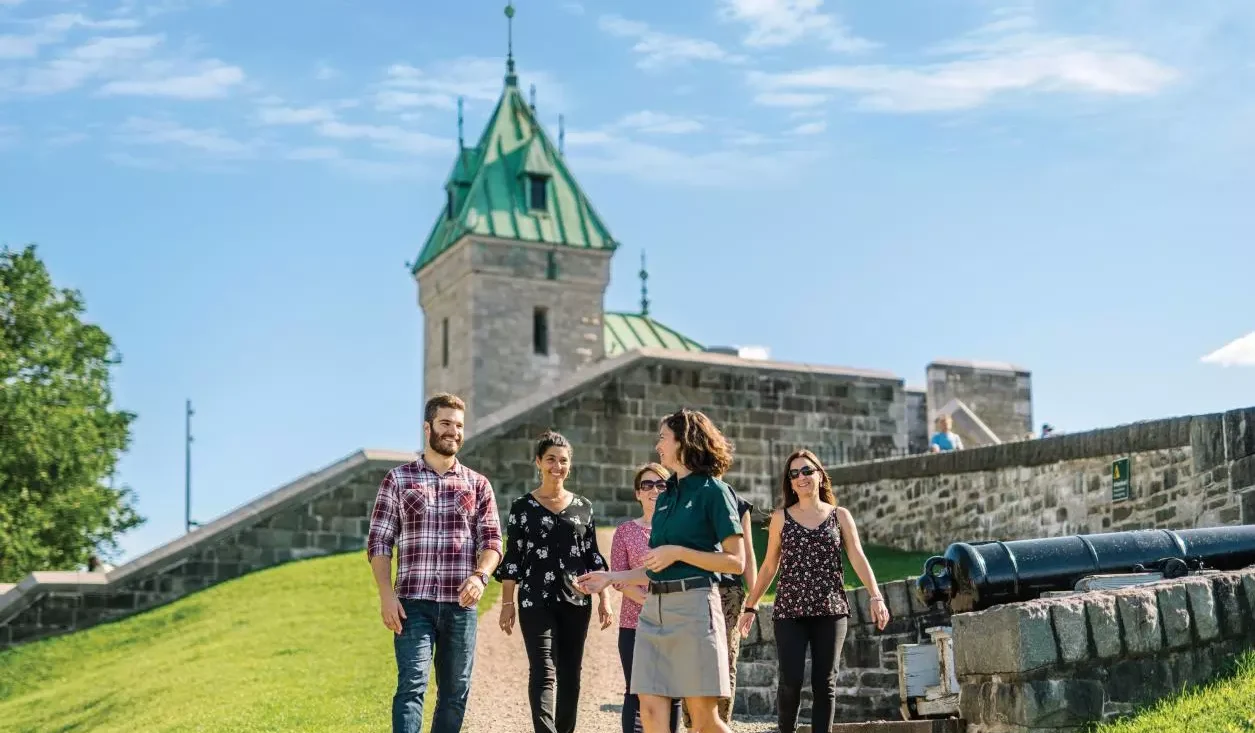12 November 2024
Sustainable development and family heritage: Our eco-responsible commitment at the Hôtel Château Laurier Québec

Dear readers,
Let me introduce myself, Corinne Lafrance-Girard, daughter of Alain Girard and sister of Aude Lafrance-Girard. I have been actively involved in the company for over five years, and I am currently in charge of special projects, taking over the family business alongside my beloved sister. This is my first time contributing to the blog of Hôtel Château Laurier Québec. I am delighted, as I have always found it easier to express myself in writing rather than speaking. Moreover, this is an opportunity for me to talk about a subject that is very close to my heart: sustainable development. For those who shudder at the mere mention of the term, fear not, there will be no reprimands or feelings of guilt conveyed in the following lines. However, I can’t help but gently suggest you start getting used to hearing and reading it, as it’s here to stay.
I won’t use these lines to describe in great detail what we have accomplished since 2009. Instead, I would like to talk about the new tool I’ve chosen to guide our current and future approach. And if you don’t mind, I’ll indulge in a little philosophical rambling!
So, you may know that Hôtel Château Laurier Québec and its banquet and catering service, George V, have been certified Biosphere since July 2024.
Biosphere is an international system for continuous improvement processes, connected in real-time to the 17 Sustainable Development Goals (SDGs) and 169 targets set by the United Nations. Applied for over 25 years by companies and tourist destinations across 77 countries, Biosphere was recognized in 2021 as the best management and sustainability certification tool for the tourism industry in Quebec. Biosphere was the first sustainability certification system to integrate social and cultural issues (1998). This might seem like a small fact, but it’s central to my decision for two reasons:
Aude and I are aware that managing businesses of a certain scale comes with great responsibility. The greatest of these, in my opinion, is ensuring that our companies contribute to the well-being of our community, starting with our employees. We want to contribute to harmony within the social system we belong to and, above all, avoid creating inequities.
The cultural aspect has always been central to our vision of sustainable development. My father, Alain Girard, was a pioneer in stating that, for him, “culture is the foundation, it’s what holds us together. Economy and environmental protection are built on this foundation.” I would add the following to his quote: every social transformation is built on this foundation. Sustainable development is a social transformation necessary in response to climate change and the long-exceeded capacity of our planet to absorb the destructive effects of overconsumption. Don’t see the link between culture and sustainable development? Well, what happens to you when you listen to your favorite music, watch a dance performance, or read a novel? Probably a range of emotions. Many philosophers, scientists, artists, and activists throughout Quebec’s history (Hubert Reeves, Naomi Klein, Michèle Audette) and internationally (Martin Luther King, Daniel Goleman, Gandhi, Brené Brown) have highlighted the importance of emotions in taking actions that lead to change at the individual level and/or social transformation. I think this is what my father, Alain, intuitively knew and felt, even if he didn’t necessarily express it that way.
This conviction also led to our position of being Éco Franco Responsable. Let me explain, and here we go:
Cultural expressions often create emotions in those who consume them. Emotions (empathy, awe, anger, concern) seem to play an important role in social transformations, such as the transition to sustainability. The French language, being a central pillar of Quebec’s cultural identity, protecting our language and promoting our culture necessarily contributes to a sustainable transition in Quebec. This is where the concept of Éco Franco Responsabilité comes from.
This marks the end of my philosophical rambling, so let’s get back to business (or to the ground, as they say). The Biosphere certification is awarded by the Responsible Tourism Institute (RTI), which was itself created with the support of UNESCO and is a founding member of the Global Sustainable Tourism Council (GSTC). The Sustainable Development Solutions Network (SDSN) is the international reference network for achieving the SDGs. Created in 2012 by the UN Secretary-General, SDSN collaborates with RTI in developing the Biosphere criteria and measurement methodology.
I know, that’s a lot of acronyms, but I wanted to explain it because it was crucial for me to understand all of this. I was looking for a certification that was directly connected to the most universal sustainable development guidelines currently available worldwide—the UN SDGs.
What confirmed my choice was the announcement by Destination Québec Cité in 2023, revealing their Biosphere certification support program and their goal of becoming the world’s first French-speaking destination to achieve this certification (which they achieved in October 2024).
I had found the certification that matched all the criteria of our Éco Franco Responsable policy, allowed us to actively contribute to a regional movement, and provided the support we needed to do so. Reflecting on it now, I should’ve bought a lottery ticket that day!
For the future, however, we cannot rely on luck; we must take action. So, I proudly declare that the team at Hôtel Château Laurier Québec and George V will not rest on its laurels 😉 and will work each year to improve its ways of doing and thinking to contribute as much as possible to the sustainable transition.
Back